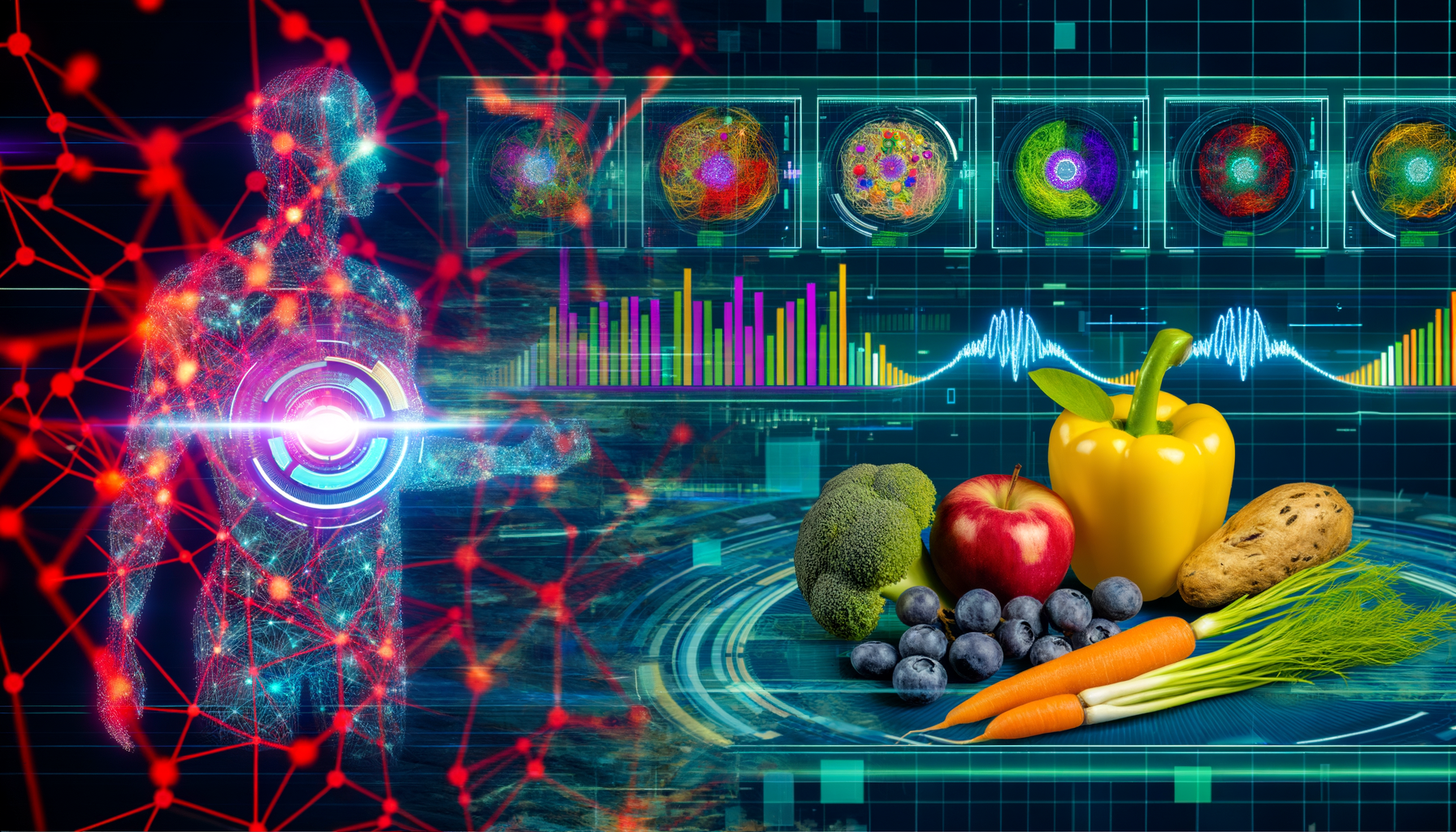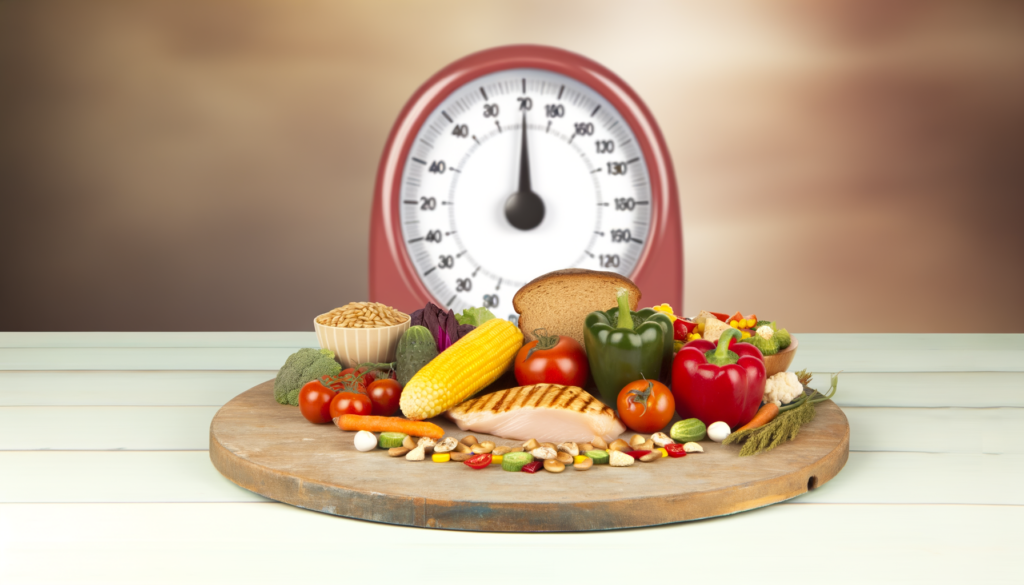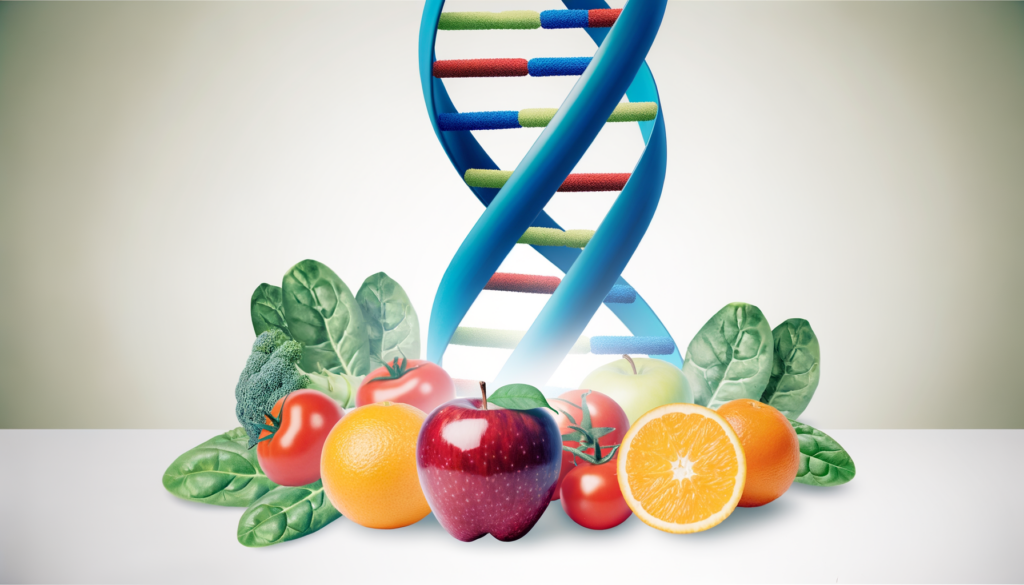Leveraging AI for Advanced Health and Nutrition Insights
In the modern era, the integration of Artificial Intelligence (AI) in health and nutrition has revolutionized the way we approach personal wellness. AI is no longer just a tool for automation; it has become a pivotal component in predictive health and nutrition, offering tailored solutions that cater to individual needs.
AI-Driven Dietary Assessments
AI uses machine learning algorithms to analyze dietary information, including the nutrient content of food and portion sizes. This detailed analysis helps identify nutritional intake patterns, detect deficiencies, and observe changes over time. For instance, AI can accurately identify specific nutrient deficiencies, such as vitamin or mineral shortages, and suggest interventions to rectify these deficiencies.
Predictive Nutrition and Health Outcomes
One of the most significant advancements in AI-driven health is the ability to predict health outcomes based on historical dietary data and health markers. AI can correlate dietary choices with potential health issues, such as diabetes or heart disease, allowing for early intervention and better dietary decisions. This predictive capability enables individuals to make informed choices that can prevent chronic diseases and improve overall well-being.
Real-Time Monitoring and Feedback
AI-powered health and nutrition apps, like MealMate, Mealmind, and Foodvisor, track daily food intake and provide real-time feedback and recommendations. These apps adjust their suggestions based on the user’s eating habits, ensuring that the nutrition plan remains aligned with the user’s health goals. For example, if a user is trying to follow a low-carb diet or avoid certain allergens, these apps will generate personalized meal plans and shopping lists to help them stay on track.
AI in Nutrient Optimization
AI determines which nutrient-rich foods to include in a diet by analyzing detailed food databases. It can group foods based on their vitamin and mineral content, recommending a balanced intake of leafy greens, nuts, and lean proteins. This approach promotes dietary diversity, ensuring that users get a balanced intake of fruits, vegetables, grains, and proteins. AI also scans diets to identify deficiencies in essential vitamins and minerals, suggesting corresponding foods or supplements to fill these gaps.
Personalized Health Forecasts
AI uses data profiles to provide individualized health forecasts, highlighting potential future health challenges. By offering actionable recommendations, AI helps individuals make the right dietary and lifestyle choices to mitigate these risks. For example, if an AI system predicts a high risk of developing diabetes based on dietary habits and health markers, it can suggest specific dietary changes and lifestyle modifications to reduce this risk.
Case Studies of Data-Driven Wellness Programs
Real-world examples illustrate the effectiveness of AI in health and nutrition. A mid-sized manufacturing company, for instance, used health screening results and medical claims data to identify a high rate of musculoskeletal disorders among production workers. By analyzing participation data, the company expanded yoga and stretching options, provided ergonomic workstation assessments, and targeted communications to at-risk workers. This data-driven approach significantly reduced absenteeism and improved worker health.
AI in Chronic Disease Prediction
AI is also being used to predict and manage chronic diseases such as diabetes, heart disease, and cancer. Advanced machine learning algorithms, including artificial neural networks and feature selection techniques, are employed to identify significant health markers and predict disease outcomes with high accuracy. For example, a study using an artificial neural network with particle swarm optimization achieved a 99.67% accuracy in predicting chronic diseases like diabetes and heart attacks.
Hyper-Personalization in Wellness
In 2024, AI-driven wellness trends are expected to focus on hyper-personalization, integrating wellness data into lifestyle choices. Wearables and other health monitoring devices provide continuous data that AI can analyze to offer personalized, real-time health recommendations. This integration of wellness data across various sources enables a more holistic approach to health management, where every aspect of an individual’s lifestyle can be optimized for better health outcomes.
Conclusion and Next Steps
The integration of AI in health and nutrition is transforming the way we manage our well-being. From personalized meal plans to predictive health forecasts, AI offers a suite of tools that can significantly improve health outcomes. If you are looking to leverage these advancements, consider using AI-powered health and nutrition tools like those offered by Calorie Calculator Cloud.
Getting Started with AI-Driven Health
To begin your journey into AI-driven health and nutrition, here are some steps you can take:
- Use AI-Powered Meal Planners: Apps like MealMate and Mealmind can help you create personalized meal plans based on your health goals and dietary preferences.
- Monitor Your Health Data: Utilize wearables and health monitoring devices to collect data that AI can analyze for real-time health recommendations.
- Choose the Right Tools: Explore different AI-driven health tools, such as those offered by Calorie Calculator Plans, to find what best suits your needs.
- Stay Informed: Keep up with the latest trends and research in AI-driven health and nutrition to make the most of these technologies.
By embracing AI in health and nutrition, you can take a proactive and data-driven approach to your well-being, ensuring a healthier and more balanced lifestyle.








